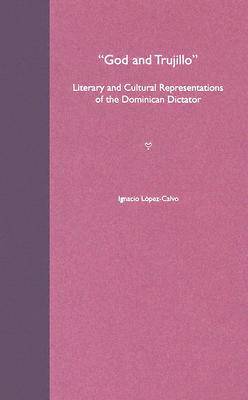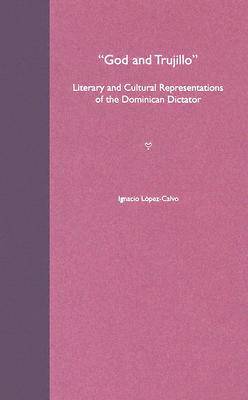
Bedankt voor het vertrouwen het afgelopen jaar! Om jou te bedanken bieden we GRATIS verzending (in België) aan op alles gedurende de hele maand januari.
- Afhalen na 1 uur in een winkel met voorraad
- In januari gratis thuislevering in België
- Ruim aanbod met 7 miljoen producten
Bedankt voor het vertrouwen het afgelopen jaar! Om jou te bedanken bieden we GRATIS verzending (in België) aan op alles gedurende de hele maand januari.
- Afhalen na 1 uur in een winkel met voorraad
- In januari gratis thuislevering in België
- Ruim aanbod met 7 miljoen producten
Zoeken
God and Trujillo
Literary and Cultural Representations of the Dominican Dictator
Ignacio López-Calvo
Hardcover | Engels
€ 64,95
+ 129 punten
Omschrijving
Rafael Trujillo, dictator of the Dominican Republic from 1930 until his assassination in 1961, is still heavily mythologized among Dominicans to this day. God and Trujillo, the first book-length study of works about the Dominican dictator, seeks to explain how some of those myths were created by analyzing novels and testimonials about Trujillo from Dominican writers to canonical Latin American authors, including Mario Vargas Llosa and Gabriel García Márquez. Trujillo's quasi-mythological figure created a compelling corpus of literary works. Ignacio López-Calvo's study offers a vigorous analysis of 36 narrative texts. He analyzes the representation of the dictator as a mythological figure, his legacy, the role of his doubles, his favorite courtiers and acolytes, and the role of women during the so-called Era of Trujillo.He also traces the evolution and significance of these narratives from a theoretical perspective that falls within the cultural studies framework. The study of the Dominican testimonio and the unveiling of the Taino myth in the "Trujillato narratives" are particularly innovative. In addition, he describes class antagonism and the demythification of the leftist militant in the Trujillato narratives. He also offers an illuminating account of the Dominican left and of the anti-Trujillo resistance as contained in Dominican literature.
Specificaties
Betrokkenen
- Auteur(s):
- Uitgeverij:
Inhoud
- Aantal bladzijden:
- 224
- Taal:
- Engels
Eigenschappen
- Productcode (EAN):
- 9780813028231
- Verschijningsdatum:
- 30/06/2005
- Uitvoering:
- Hardcover
- Formaat:
- Genaaid
- Afmetingen:
- 161 mm x 236 mm
- Gewicht:
- 449 g

Alleen bij Standaard Boekhandel
+ 129 punten op je klantenkaart van Standaard Boekhandel
Beoordelingen
We publiceren alleen reviews die voldoen aan de voorwaarden voor reviews. Bekijk onze voorwaarden voor reviews.









